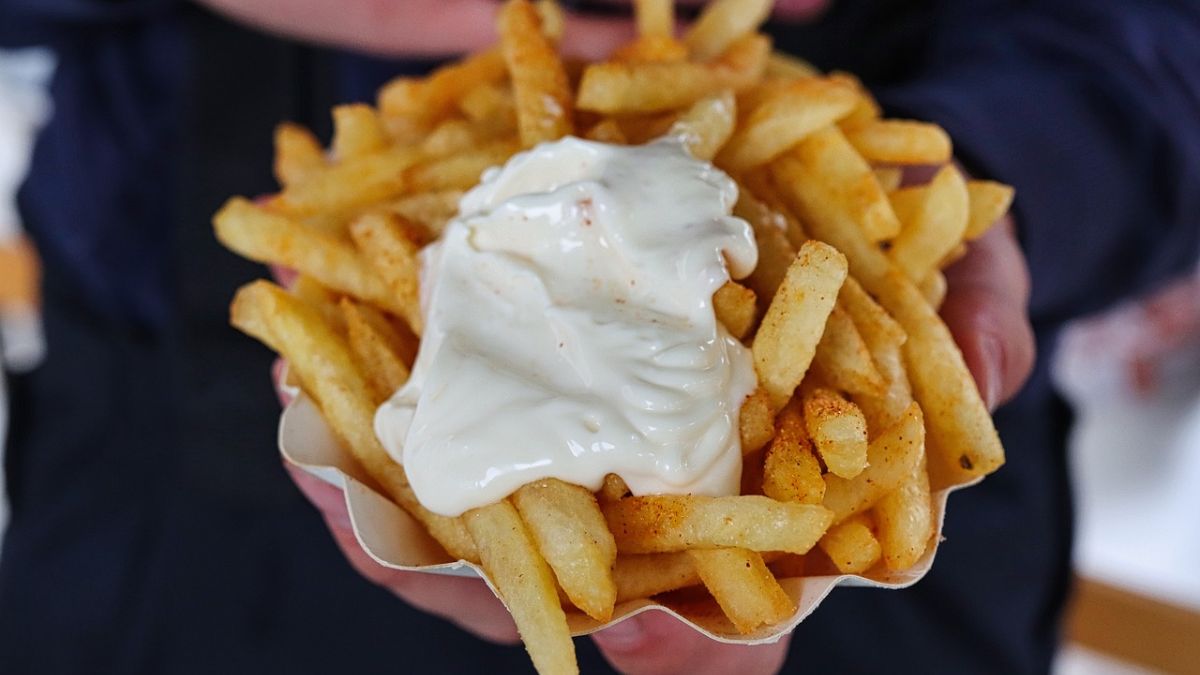“All I can do is be me, whoever that is,” said the ever-enigmatic Bob Dylan back in 1965, the year that would become cemented in Dylan-lore as the one in which he went electric. So he’s perhaps raising an eyebrow at elfin Timothée Chalamet also taking a punt at becoming the elusive rock god, for new biopic A Complete Unknown.
Chalamet – known for his Tim Burton-esque physicality and as a darling of the more experimental realms of fashion – was photographed dressed as Dylan on set in a getup which reflects the Nobel Prize for Literature winner’s early period – all love-worn jackets, raggedy scarf, denim jeans and rustic American workwear, a first glimpse of his transformation into the most elusive American singer-songwriter of them all.
Timothée Chalamet on the set of the Bob Dylan biopic in New York City.Credit: Media Mode
It’s one of the signature looks that costume designer Arianne Phillips – the Oscar nominee who created the defining style of Tom Ford’s A Single Man and Madonna’s ’90s and early ’00s image making – is going to have to get right to meet the exacting eye of the Bobcats, his impassioned fan base. But how to get his wardrobe right?
“When Dylan arrived into New York in the winter of 1961, his style was as much a construct as his new name and backstory: part-roustabout, part-Beatnik,” says Bill Prince, editor-in-chief of Wallpaper magazine (and music enthusiast extraordinaire).
Loading
“The Dutch cap, workshirt, stove-legged denims and hard-travelled boots were a piece of New York’s folksy demimonde, then in thrall to the likes of Woody Guthrie and Ramblin’ Jack Elliott. Nevertheless, it failed to survive first contact with the bohemian ensembles of The Beatles, after which Dylan adopted the black leather, skinny jeans and Chelsea boots of his Liverpudlian oppos.”
Much like his seismic segue from folk to electric guitar, Dylan’s style swerved from authentic chore jackets and rather more downplayed ensembles to something sharper and more deliberate (only the tangled mop of hair remained). By the late ’60s, his image was broodingly atmospheric; the black jackets – either military or leather, alongside lean-as-you-like jeans, Cuban-heeled boots and perhaps a trailing scarf.

Dylan walking with Suze Rotolo in September 1961 (right); Dylan in 1964.Credit: Getty
It was part-Beatnik and also redolent of what was happening with the left-of-centre musicians in Europe; it’s a very Left Bank look, as typified by Serge Gainsbourg. The style has often been mined on the menswear catwalks by labels including Celine, Saint Laurent and John Varvatos.






)
